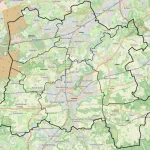TOTSCo Switches to Focus on UK Business Broadband ISP Switching

The One Touch Switching Company (TOTSCo), which is the industry-led company that is helping to implement Ofcom’s solution for easier and quicker UK consumer switching between broadband and phone providers (One Touch Switching), has revealed more details about its efforts to introduce support for business connections too.
The current OTS system is a largely automated Gaining Provider Led (GPL) process, where the customer contacts their new (“gaining“) ISP to start and manage the process on their behalf. But the new process is, technically, only a requirement for residential customers. Ofcom has previously stated that this is because “business and residential customers can sometimes have different needs when switching and that there is diversity among business which means it may not be appropriate to specify certain rules that would apply to all business customers in the same way as to residential customers.”
The catch in all this is that businesses are still required by Ofcom to follow most of the same rules (i.e. Ofcom simply have not specified what the process should be for business ISPs) and so, in practice, many business providers will end up using OTS, and thus TOTSCo, too. Consequently, TOTSCo is now starting to focus more on the development of a Gaining Provider Led Business (GPLB) Switching Industry Process.
Advertisement
According to a new briefing, which was spotted by Thinkbroadband, the GPLB Steering Group (GPLB SG) within TOTSCo is now “nearing completion” of its work on the new process for providers that might “wish to use it“. This is naturally based on the same foundations that have already been developed for consumers. The first integration testing of all this is currently anticipated for Q2 2025.
TOTSCo Statement
TOTSCo has retained members of its OTS delivery team, both in-house and at our technical partner, Tech Mahindra. They will impact-assess the required changes to the hub and propose to the TOTSCo board a costed plan and delivery timeline. Once approved, these plans will be shared with all stakeholders. This is likely to be in early 2025.
We envisage the path to GPLB Switching go-live will closely follow the OTS path, including onboarding, simulator testing, integration testing and completing industry trials. We are optimistic that users will be able to start integration testing with the TOTSCo GPLB Switching solution in Q2 2025. Please note, this timeline is indicative and non-binding and we will confirm the timeline in early 2025.
The company recently met with a number of larger providers (e.g. BT) to confirm the viability of the programme and those representing a significant combined market share are said to have indicated that they “intend to use and are prepared to fund a TOTSCo solution“, which has given TOTSCo the “confidence to proceed with the GPLB solution” without introducing financial risk.
However, it is noted that some of the Managed Access Providers (MAPs), which represent different groups of providers, are considering a GPLB offering based on a “network of hubs” rather than TOTSCo’s single central hub. But TOTSCo has pledged to engage with these solution-providers as they develop their plans and said they “are open to undertaking additional development work to enable TOTSCo’s solution to interconnect with them.”
Mark is a professional technology writer, IT consultant and computer engineer from Dorset (England), he also founded ISPreview in 1999 and enjoys analysing the latest telecoms and broadband developments. Find me on X (Twitter), Mastodon, Facebook, BlueSky, Threads.net and Linkedin.
« Hiya – UK Residents Receive 4 SPAM Calls Per Person Each Month






















































Why? When they can’t even get consumer switching right? It’s a what? 60% success rate
Is it really that difficult to “match” up a name and address, maybe bank details and connection type?
There can’t be that much they need to match?
Incredibly difficult. There’s myriad different systems and processes used across the industry to capture customer details, which leads to errors, and whilst there is contingency in the automated matching process, if you’re relying on things like spelling, account holder names vs. the person applying for new service – trying to match all of that is a minefield (as any data specialist will attest).
Of course, Ofcom knew this, and were told this… Their advice was simply ‘fix your data’. Again, I will let the data specialists out there tell you how complex this is.
Having just done a simple OpenReach based switch from TalkTalk to Vodafone I struggle to understand why the OTS was unable to match my existing details within TalkTalk. There is absolutely nothing complex about my situation, simple name, address, and even the TT account number was unable to get a match for Voda in the GPL OTS process.
If they can’t get this right TOTSCO have absolutely no hope for business accounts.
TOTSCo don’t have anything to do with the matching. The hub is a glorified post-box through which all of the interactions to complete a switch have to flow.
The matching is solely the responsibility of the ISP’s at each end. If one or the other has or collects ‘bad’ data, or the person wanting to make the switch enters the wrong details, they’ll never match.
@HullLad Well all I can add is that there is no ambiguity on how my surname is written, with my address, and it still failed to match even with my account number.
I would accept it might have problems with a complex surname or address but in my situation it’s all super simple and it still doesn’t work.
In the old world a switch between different ISPs on OpenReach didn’t even need this matching process. But according to Voda (my gaining ISP) I now need to manually contact TalkTalk to tell them I am leaving, although I don’t believe that. In my view this OTS is a worse process that just adds uncertainty when it doesn’t find a match.
Age old IT failing on teh well known LCILCO (less excrement in less ‘e’ out) And it was known decades ago the cost of cleaning up the excrement was way more than actually designing and implementing system that prevented the excrement in the first place. But no management ever wanted to dictate to user groups the matter of the sysem slowing them down by preventing the excrement form being commited. And here we are 40 years later reaping the rewards. Shitty maintenace = broken systems, lack of dependability.
When do we think Ofcom et al will consider the real world scenario for and adress and tellephone number migrating between ‘residential’ and ‘business’ and visa versa…
One wonders about the real difficulty of having physical provider/administrator, address, number, contact/bill/contract-owner and add in a logical account record for a unique compound data record. Admittedly there may be many numbers associated with a single address, even many accounts within an address, but ultimately they know how to bill for a number/set of numbers and many to many data relationships are not exactly new in the world of DBs and Sql. RDBMS ‘design’ and normalisation all undergraduate level knowledge.
@plunet, I too an finding swapping providers, strangely also between TTB and Vodafone, repeatedly confounded by what ever systems they use not facillitating keeping our landline number ( afaik number portability is actually covered as a legal entitlement by a certain telecoms act of 2003, which no one regulator seems to actualy care/facilitate or regulate from a customer victim perspective, or switching time SLA’s OTA2..?). As for Customer service / ‘help’ systems, who ever designs their scenario and decision tree specifications, kindergarten or machiavellians’ working to annoy customers when real world scenarios aren’t catered for, grate britain.
Still keeping my fingers crossed it will happen eventually, but despite being a bit of a co-ordinator, there is scant openness between LCP and GCP and the ‘customer’.
For clarity, the GPLB-SG is NOT part of TOTSCo and TOTSCo has no part of or role in defining the GPLB processes.
TTOSCo are only looking at making the required changes to the platforms they delivered in support of OTS so that they can also support the GPLB process.
TOTSCo have not as yet been engaged to deliver any industry rollout for GPLB. The party to manage that is still to be defined.
Regarding the MAP engagement, that activity is required to support switching between MAPs hosted CPs and TOTSCo hosted CPs. TOTSCo are now engaged and the design work is progressing rapidly. This will have no impact on the CPs themselves though.